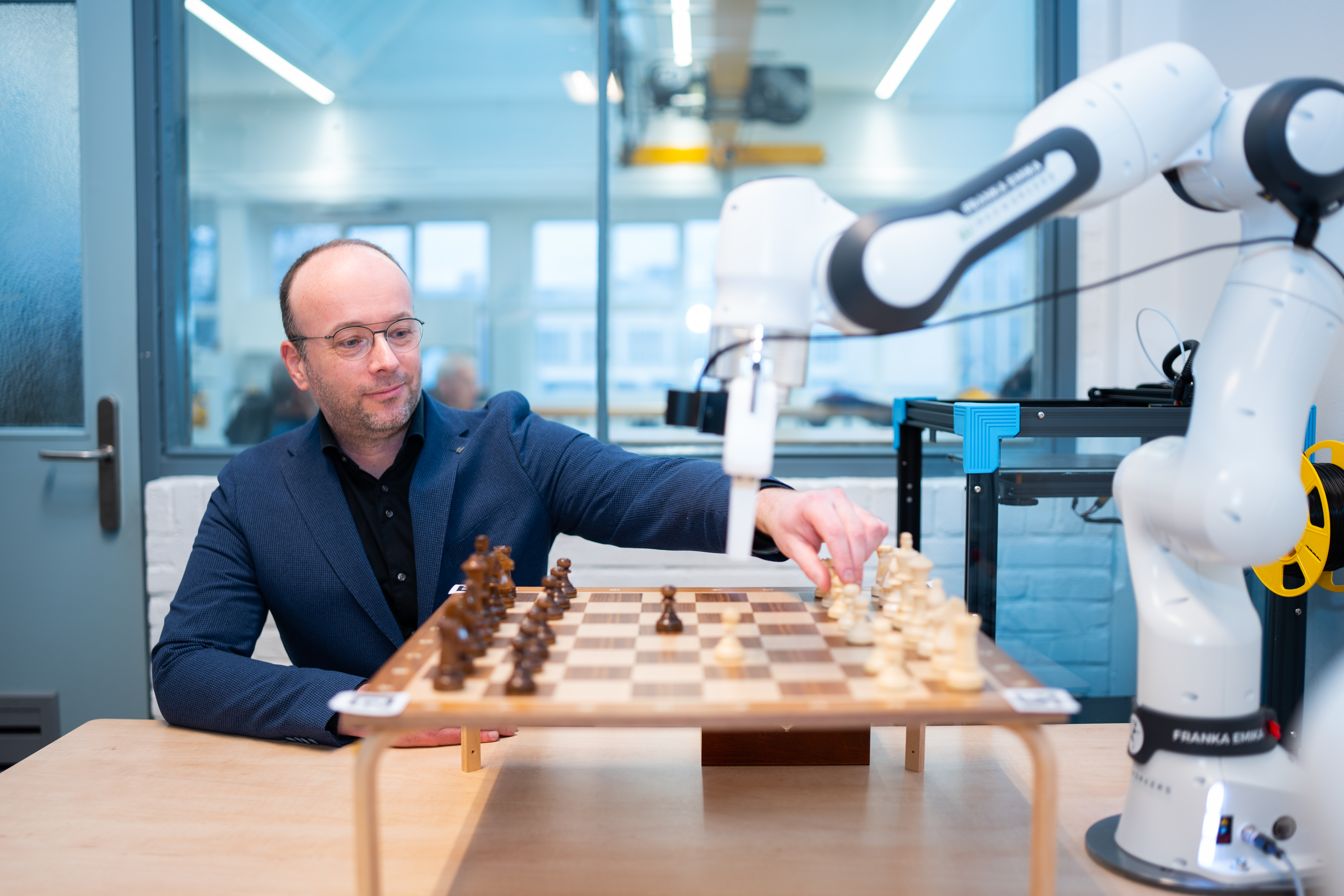Inaugural lecture: ‘We are moving towards shared cognition between humans and robots’
Will robots in the future know if a human has seen them and let them know this as well? If it’s up to TU Delft professor Joost de Winter, the answer is yes. He is working on contactless interaction between humans and machines. The ultimate goal is to merge human and robotic information processing. In his inaugural address on 7 June, De Winter will take you through the various aspects of his research but also shed light on the growing role of AI in science and education.
Interacting with a robot or machine is still mostly done through physical controls such as keyboards. This is already becoming more challenging as an increasing number of robots are able to move independently. According to Joost de Winter, professor of Cognitive Human-Robot Interaction, this kind of interaction can be much more natural, similar to the way people communicate with each other or a dog interprets its owner’s commands. ‘By teaching robots to understand what a human wants and feels, and to adapt their actions accordingly, human-robot interaction can be much more fluid. Indeed, it would allow us benefit much more from working with robots,’ De Winter says.
Eye movements
People are increasingly working alongside or with robots and machines. Think of the robot vacuum cleaner that helps around the house, the self-driving car or the recent emergence of robots that look and communicate like humans. De Winter’s research focuses on collecting data on human-robot interaction. For example, his team uses eye-tracking and sensors that measure head movements to see where a driver is looking and whether pedestrians have noticed the car. This data is used to help the robot better understand and adapt to humans.
Robot acceptance
Conversely, De Winter is working on ways to help people understand robots better through contactless interaction. For example, a robot may soon be able to tell passers-by that it has seen them and will stop for them. ‘We are also studying people’s general preferences,’ says De Winter. ‘What kind of interaction people like, but also when and how often contactless interaction is accepted. Nobody is interested in a robot that talks or beeps all the time.’ Another important question is how the robot should behave. Should the robot’s behaviour be as similar as possible to that of a human, or is that not necessary? And to what extent should the robot be able to understand or even profile people based on the data it collects? De Winter’s work therefore covers several areas of expertise. ‘We combine classical engineering methods with insights from psychology and computer science.’
AI in research and education
Artificial intelligence (AI) is an indispensable part of De Winter's work. ‘It feels completely liberating. It is opening up a wealth of new opportunities, and we can now develop better models.’ It is not only in research that the use of AI is on the rise, according to De Winter. It is also being used in education, for example with ChatGPT. He sees opportunities but stresses that we need to be aware of the consequences. De Winter is keeping a close eye on developments in AI. In his inaugural address, he will share his thoughts on how we should deal with this as a university, but also as a society.

